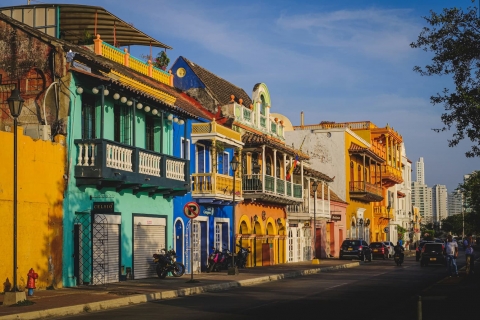La Paz Weather and Climate: A Comprehensive Guide
La Paz has relatively stable weather with mild temperatures.
It also experiences much rain/snowfall throughout the year.
Now, let’s break down all the climate details for a clearer picture.
Average maximum day and minimum night temperature
The climate in La Paz remains fairly constant, offering moderate temperatures throughout the year. Average daytime temperatures reach a moderate 16°C in November. In July, the coolest month of the year, temperatures drop to a moderate 14°C.
At night, you can expect cooler temperatures, with averages dropping to around -1°C during this month. Check out our detailed temperature page for more information.Temperature ranges by month
Precipitation and rainy days
La Paz is known for its substantial rain/snowfall, with annual precipitation reaching 1134 mm. La Paz can be quite wet during January, receiving approximately 173 mm of precipitation over 19 rainy days. In contrast June, experiences much drier conditions, with 32 mm of rainfall, spread across a single rainy day. For more details, please visit our La Paz Precipitation page.The mean monthly precipitation over the year, including rain, hail and snow
Sunshine over the year
La Paz can be enjoyed more throughout the sunniest month of July under a blue sky, with approximately 9.3 hours of sunshine daily. In contrast, the city experiences much darker days in February, with only 4.7 hours of sunlight per day. Visit our detailed sunshine hours page for more information.Monthly hours of sunshine
Daily hours of sunshine
Average humidity
The relative humidity is moderate throughout the year in La Paz.
The city experiences its highest humidity in February, reaching 72%. In June, the humidity drops to its lowest level at 42%. What does this mean? Read our detailed page on humidity levels for further details.
Relative humidity over the year
broken clouds and thunder overcast and rain almost clear and no rainForecast for La Paz
Select a Month of Interest
Check the conditions for any month of the year.
The best time of year to visit La Paz in Bolivia
Other facts from our historical weather data:Most rainfall (rainy season) is seen in January, February and December.
November has an average maximum temperature of 16°C and is the warmest month of the year.
The coldest month is July with an average maximum temperature of 14°C.
January tops the wettest month list with 173 mm of rainfall.
June is the driest month with 32 mm of precipitation.
July is the sunniest month with an average of 279 hours of sunshine.
No idea where to travel to this year? We have a tool that recommends destinations based on your ideal conditions. Find out where to go with our weather planner.




